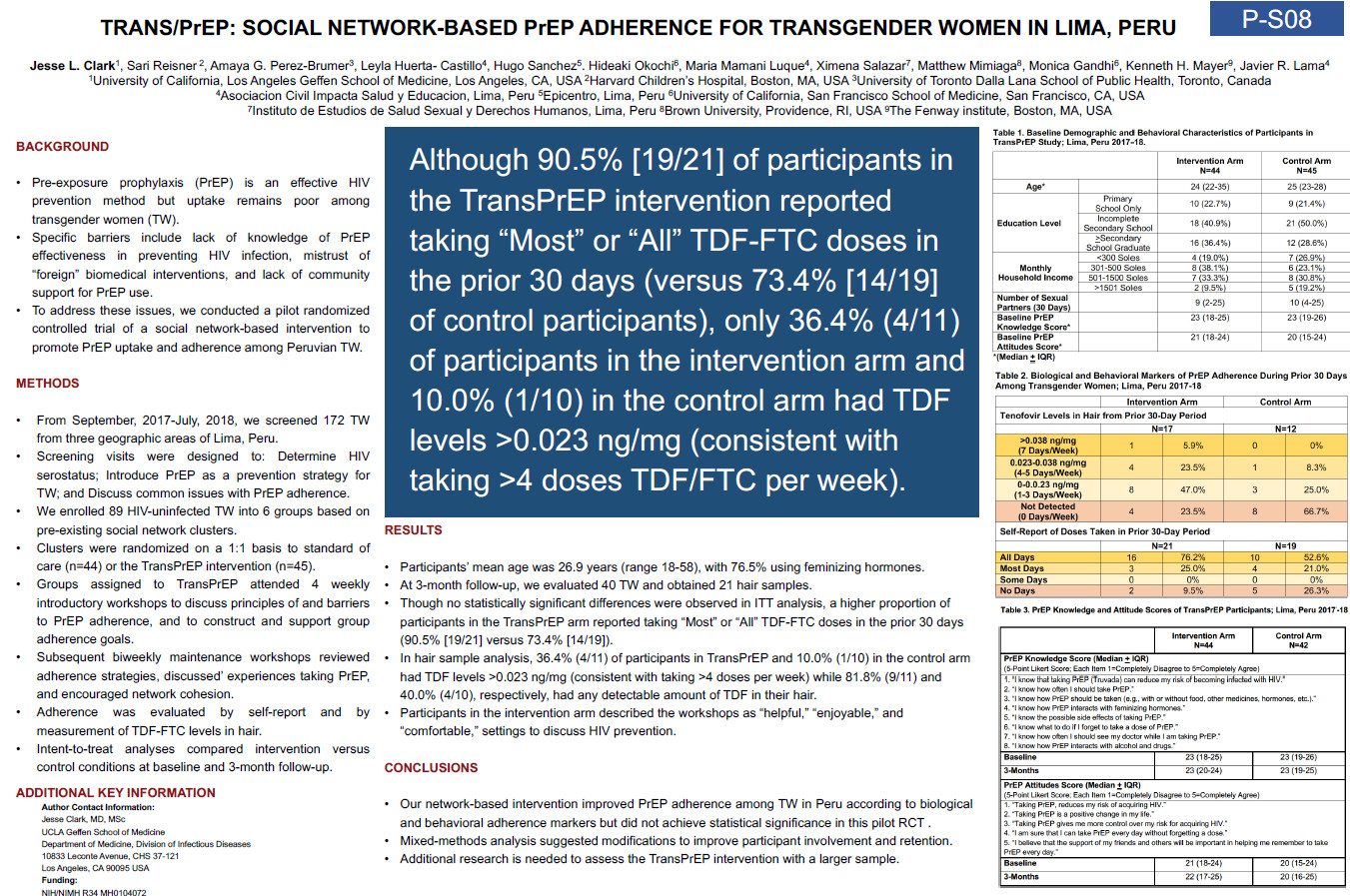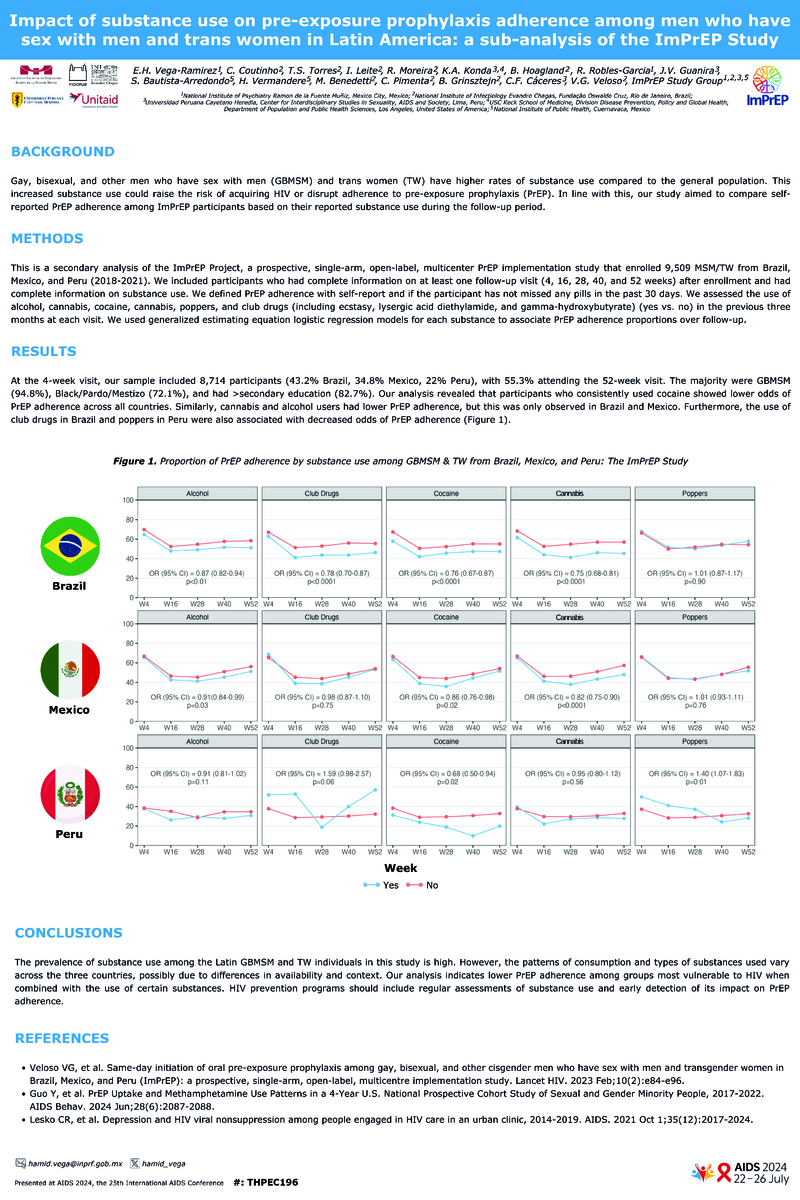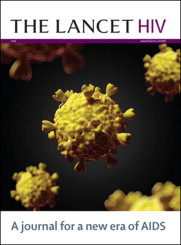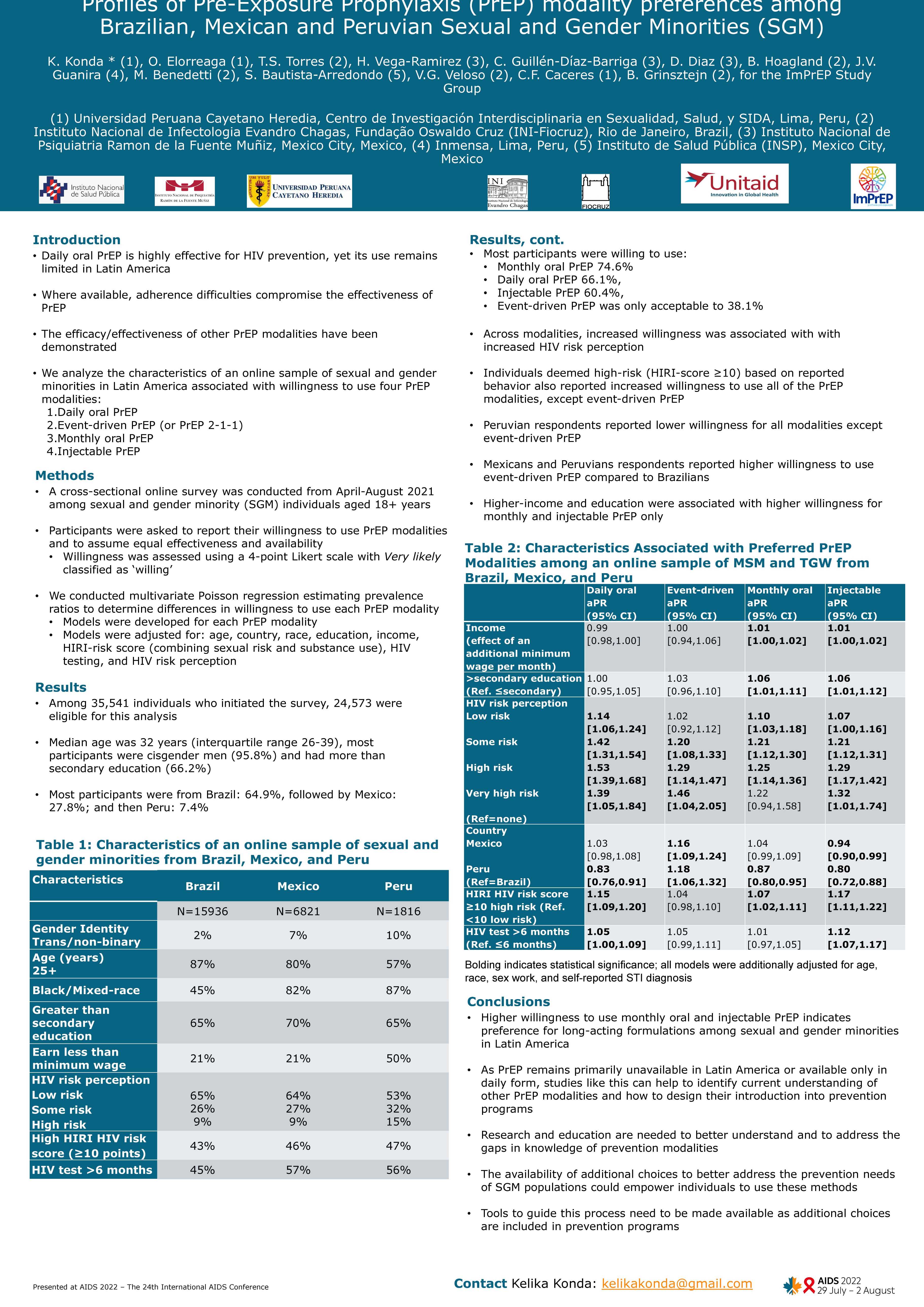Resumen
While pre-exposure prophylaxis (PrEP) is an effective HIV prevention method, uptake remains poor among transgender women (TW). We conducted a pilot randomized controlled trial of a social network-based intervention to promote PrEP adherence among Peruvian TW. From September, 2017-July, 2018, we screened 172 TW from three geographic areas of Lima, Peru. Screening visits were conducted to: assess HIV serostatus; introduce PrEP as a prevention strategy; and discuss PrEP adherence. We enrolled 89 HIV-uninfected TW into 6 groups based on pre-existing social network clusters. Clusters were randomized on a 1:1 basis to standard of care (n=44) or the TransPrEP intervention (n=45). Groups assigned to TransPrEP attended 4 weekly introductory workshops (to discuss principles of and barriers to PrEP adherence, and to construct and support group adherence goals). Biweekly maintenance workshops reviewed adherence strategies, discussed participants’ experiences taking PrEP, and encouraged network cohesion. Adherence was evaluated through self-report and by measurement of tenofovir (TFV) levels in hair. Intent-to-treat analyses compared intervention versus control conditions at baseline and 3-month follow-up. Participants mean age was 26.9 years (range 18-58), with 76.5% using feminizing hormones. At 3-month follow-up, we evaluated 40 TW and obtained 21 hair samples. Though no statistically significant differences were observed in ITT analysis, a higher proportion of participants in the TransPrEP arm reported taking Most or All TDF-FTC doses in the prior 30 days (90.5% [19/21] versus 73.4% [14/19]). In hair sample analysis, 36.4% (4/11) of participants in TransPrEP and 10.0% (1/10) in the control arm had TFV levels >0.023 ng/mg (consistent with taking >4 doses per week) while 81.8% (9/11) and 40.0% (4/10), respectively, had any detectable amount of TFV in their hair. Participants in the intervention arm described the workshops as helpful, enjoyable, and comfortable, settings to discuss HIV prevention. Pilot assessment of our network-based intervention showed improvements in PrEP adherence among TW in Peru according to both biological and behavioral adherence markers but did not achieve statistical significance. Mixed-methods data identified potential modifications to improve participant involvement and retention. Additional research to assess the TransPrEP intervention with a larger sample is needed.
Autoría:
CLARK, Jesse L.;
REISNER, Sari L.;
PÉREZ BRUMER, Amaya G.;
HUERTA CASTILLO, Leyla;
SÁNCHEZ, Hugo;
OKOCHI, Hideaki;
MAMANI LUQUE, María;
SALAZAR LOSTAUNAU, Ximena;
MIMIAGA, Matthew;
GANDHI, Monica;
MAYER, Kenneth H.;
LAMA, Javier R.






